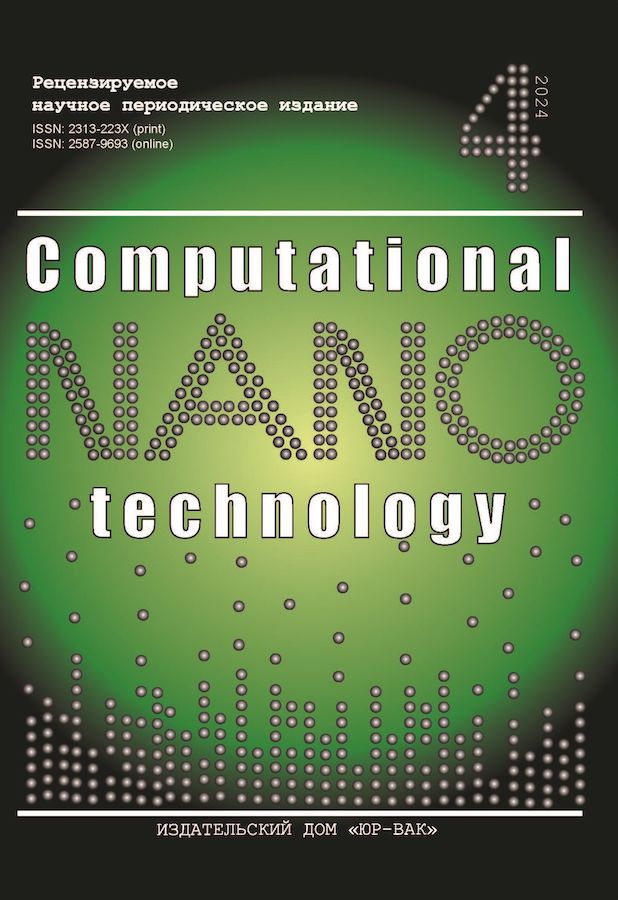Detailing fuzzy cognitive map models through clustering and nesting for complex concepts
- Autores: Saenko M.A.1, Tsvetkov V.Y.1
-
Afiliações:
- MIREA – Russian Technological University
- Edição: Volume 11, Nº 4 (2024)
- Páginas: 122-129
- Seção: COMPUTER MODELING AND DESIGN AUTOMATION SYSTEMS
- URL: https://journals.eco-vector.com/2313-223X/article/view/659770
- DOI: https://doi.org/10.33693/2313-223X-2024-11-4-122-129
- EDN: https://elibrary.ru/GPSZNE
- ID: 659770
Citar
Texto integral
Resumo
Analyzing complex information models, constructed from any collected data, is a challenging task. In recent years, new methodologies have emerged and been proposed to address various problems in this field. However, there is still a need for new, efficient, and user-friendly methods for data presentation and information modeling. This paper proposes a method for creating a nested structure based on fuzzy cognitive maps. In this method, each concept can be represented as another fuzzy cognitive map through clustering, which provides a more detailed and accurate representation of complex data and increases the convenience and efficiency of analyzing such information models. This nested structure is then optimized by applying evolutionary learning algorithms. Through a dynamic optimization process, the entire nested structure based on fuzzy cognitive maps is restructured to obtain important relationships between map elements at each level of nesting, as well as to determine the weight coefficients of these relationships based on available time series. This process allows for the discovery of hidden relationships between important map elements. The article proposes the application of this nested approach using the example of a fuzzy cognitive map of the influence of various social factors on becoming homeless.
Palavras-chave
Texto integral
Sobre autores
Maxim Saenko
MIREA – Russian Technological University
Autor responsável pela correspondência
Email: xerokan@mail.ru
Código SPIN: 2783-1881
postgraduate student
Rússia, MoscowViktor Tsvetkov
MIREA – Russian Technological University
Email: cvj7@mail.ru
ORCID ID: 0000-0003-1359-9799
Código SPIN: 3430-2415
Scopus Author ID: 000313599799
Researcher ID: J-5446-2013
Dr. Sci. (Eng.), Professor
Rússia, MoscowBibliografia
- Mago V.K., Morden H.K., Fritz Ch. et al. Analyzing the impact of social factors on homelessness: a fuzzy cognitive map approach. BMC Medical Informatics and Decision Making. 2013. Vol. 13. No 94. Pp. 1–19. (In Rus.). doi: 10.1186/1472-6947-13-94
- Rothstein A.P. Fuzzy cognitive maps in the analysis of system reliability. 2019. Vol. 19. No. 4. Pp. 24–31. (In Rus.)
- Strokova L.A. The use of fuzzy cognitive maps in the development of computational models of foundations. Proceedings of Tomsk Polytechnic University. 2009. Vol. 314. No. 5. Pp. 95–100. (In Rus.)
- Shmyrov S.A. Fuzzy cognitive maps as a means of modeling complex systems. In: Scientific community of students of the XXI century. Technical sciences. Electronic collection of articles based on the materials of the LIII student international scientific and practical conference. 2017. Pp. 210–214.
- Balashov O.V., Bukachev D.S. An approach to analyzing the bank’s performance using fuzzy cognitive maps. International Journal of Information Technology and Energy Efficiency. 2017. Vol. 2. No. 4 (6). Pp. 47–53. (In Rus.)
- Shtepa V.N. Optimization of the functioning of fuzzy cognitive maps using neural networks (using the example of water treatment process management). Bulletin of the Gomel State Technical University named after P.O. Sukhoi. 2016. No. 4 (67). Pp. 97–105. (In Rus.)
- Osipova Yu.A., Lavrov D.N. Application of cluster analysis by the k-means method for the classification of scientific texts. Mathematical Structures and Modeling. 2017. No. 3 (43). Pp. 108–121. (In Rus.)
- Mochalin A.E. Binary-real encoding of solutions in genetic algorithms. Technological Audit and Production Reserves. 2015. Vol. 3. No. 2 (23). Pp. 41–45. (In Rus.)
- Migov D.A., Nechunaeva K.A., Rodionov A.S. A genetic algorithm for structural optimization of networks using the approach of cumulative refinement of reliability boundaries. Bulletin of SibGUTI. 2015. No. 4 (32). Pp. 55–61. (In Rus.)
- Loktionova E.A. Cognitive model of the national financial market: features of construction and the possibility of using it to assess the safety of its functioning. Finance: Theory and Practice. 2022. Vol. 26. No. 1. Pp. 126–143. (In Rus.)
- Aganin A.A. Fuzzy cognitive maps: theory and application. Moscow: MSTU Publishing House, 2020.
- Alekseev I.I. Modeling of fuzzy systems. St. Petersburg: Nauka, 2018.
- Baranov S.A. Fuzzy cognitive maps in management. Moscow: Fizmatlit, 2021.
- Belov D.E. Fuzzy technologies in decision-making. Yekaterinburg: UrFU, 2019.
- Dyakov O.V. The use of fuzzy cognitive maps in economics. Kazan: KNITU, 2022.
Arquivos suplementares












